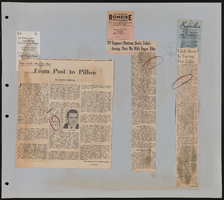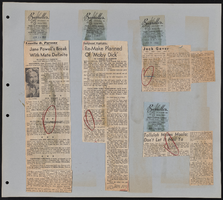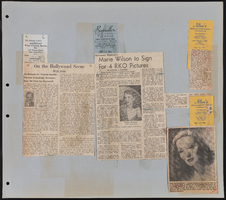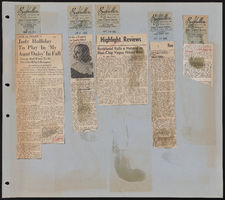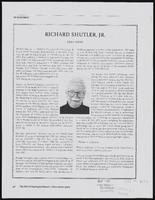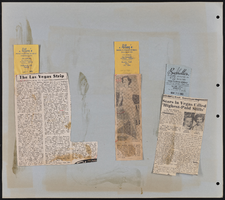Search the Special Collections and Archives Portal
Search Results
Bowser, Ida M.
Ida Bowser was born in Tallulah, Louisiana, and in 1955 at the age of 10 she was brought to Las Vegas, Nevada to join her mother and other family members. The family originally lived on Washington and H Streets, and later moved to Madison Avenue. Ida and her brothers and sisters attended Madison Elementary School right down the block.
Person

Transcript of interview with Henry Sheperd by Claytee D. White, October 22, 2014
Date
Archival Collection
Description
Text
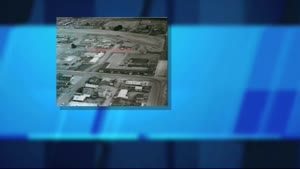
Las Vegas African American Community Conversations, Part 3: Civil Rights and Entertainment: video
Date
Archival Collection
Description
The Las Vegas African American Community Conversations is a four part, one hour round table conversation with local Las Vegans. They share their powerful stories and great history, with topics ranging from “Migration, Civil Rights, Education, Church, Entertainment and the Early Legal Community”. Part Three: A conversation about ” Civil Rights and Entertainment” MODERATOR- Claytee D. White (Director-Oral History Research Center) PANELISTS- Lonnie G Wright (College Professor/Business Owner) LaVerne C. Ligon (Director- Simba Talent Development Center Inc.) Walter Mason (Director-IRA Aldridge Theater) Leonard Pock Jr. (Retired Stagehand) B.J. Thomas (Retired Stagehand)
Moving Image
McLean, Charlie
Charlie McLean was born in 1932 and raised in Scotland to a family of musicians. McLean’s dad started teaching him to play the saxophone when he was eight years old. By the time he was nine years old, he was performing in his father’s band, which included playing concerts for the munitions workers during World War II. When he was 15, McLean’s family migrated to the United States. Following graduating from high school, McLean was drafted and played with the Non-Commissioned Officers (NCO) Club Band.
Person

